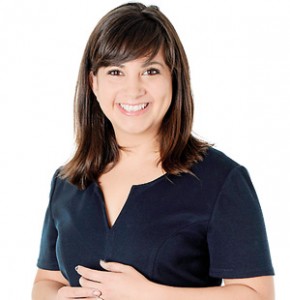Carbon offsets now in cook stoves, water bore holes, community reforestation, etc
Five years ago carbon offsets were predominantly for renewable energy projects. Now, the methodologies involved in accrediting carbon offsets have also resulted in more diverse projects, one of which is improving the awareness and utility around cook stoves, in turn helping to empower women. This is according to Vivian Frost, Regional Manager for the Carbon Neutral Company, a global company that originated as far back as 1997.

Vivian Frost, Regional Manager for the Carbon Neutral Company
The Carbon Neutral Company is partnered with Sri Lanka-based Carbon Consulting Company (CCC), which has been operating locally since 2010, and features Sri Lankan Nobel Laureate and Environmentalist Prof. Mohan Munasinghe as a company director and technical resource person.
For those unfamiliar with the term, the Carbon Neutral Company’s website defines carbon offsetting as the “use of carbon credits (financial instruments that, per unit, represent a tonne of carbon dioxide or carbon dioxide equivalent gasses) to enable businesses to compensate for their emissions, meet their carbon reduction goals and support the move to a low carbon economy”.
Speaking to the Business Times on her recent visit to Sri Lanka, the UK-based Ms. Frost also revealed that, in Asia, the focus for accredited carbon offsetting projects were mainly in the area of cook stoves. In addition, there are also now projects for community reforestation and rain forest protection, amongst others. At the same time, in Africa, the onus has shifted to water related projects, such as drilling boreholes, etc, as well as initiatives for cook stoves, like in Asia.
Additionally, Ms. Frost also commented that companies like Carbon Neutral were governed by ICROA, or International Carbon Reduction and Offset Alliance, which outlined accountability systems and other robust due diligence methodologies to guarantee carbon offset projects were fully above board.
Meanwhile, commenting on the situation in Sri Lanka, CCC Chief Executive Officer (CEO) Sanith de S. Wijeyeratne noted that, four years ago, when he joined CCC, his team had to go after people, trying to get them interested in a meeting to explain the benefits of sustainability. Also, he added that many did not even know what this was all about. However, now, they were even getting inquiries, with companies reaching out to them, asking what can be achieved in terms of reducing or offsetting carbon emissions. “That’s a marked turnaround.” said Mr. de S. Wijeyeratne.
He also mentioned that, across the board, Sri Lankan companies have asked whether they can offset against a local project. But, he noted that, while companies can choose the offsets that they prefer to subscribe to, practically speaking that does not happen. It also emerged that, up to just four months ago, there were no local projects accredited as carbon offsets. Now, there was an accredited local hydropower project. However, while it was more costly than international projects, over the last four months, all local companies signing up for certification had requested that some part of their carbon offsets be set aside for this local hydropower project.
Mr. de S. Wijeyeratne further opined that there was a massive amount of misinformation being spread about carbon credits and offsets locally. As such, he encouraged local companies, no matter the size, to get in touch with his team, even noting that CCC was willing to consider alternatives such revenue growth related commissions, instead of upfront fees, for the work they contributed. Particularly as local companies getting CCC certification would be able to charge higher fees and/or attract more customers, due to the value addition provided by a CCC certification. He also indicated that, globally, awareness levels for the cause were definitely increasing. People were becoming more used to thinking in terms of ethical spending. In Sri Lanka, more people were bringing the idea of sustainability into the mainstream business, to actually make a difference. Previously, the problem was sustainability was relegated to being only a CSR function, to be taken up once in a while when there was some extra money to spend. Now, Sri Lankans are more open to the idea of sustainability, and the benefits provided in terms of niche markets accessed, and customer growth potential. However, added Mr. de S. Wijeyeratne, people are not yet willing to put the resources into this area as seen in the West.
Adding to this, Ms. Frost noted that, internationally, there was more of a focus on climate change. A recent summit highlighted the fact that by 2020 there would be 6.5 million businesses participating in sustainability programmes. She also encouraged businesses, no matter their size to, at least, consider a simple GHG assessment, saying “You can’t reduce what you don’t measure”. Following this, there are a number of possibilities to impact climate change, from reducing one’s own carbon footprint, without outside help, to even getting firms like CCC in to help by providing certifications.
She also highlighted the need for governments to support sustainability initiatives, and not just in terms of taxes on carbon use, but maybe through incentivising lower carbon consumption behaviours. She was also of the opinion that governments had a major role to play in leveling the playing field, saying that they could help with providing a more robust and dynamic carbon prices as well as creating funds to help smaller enterprises get involved.


